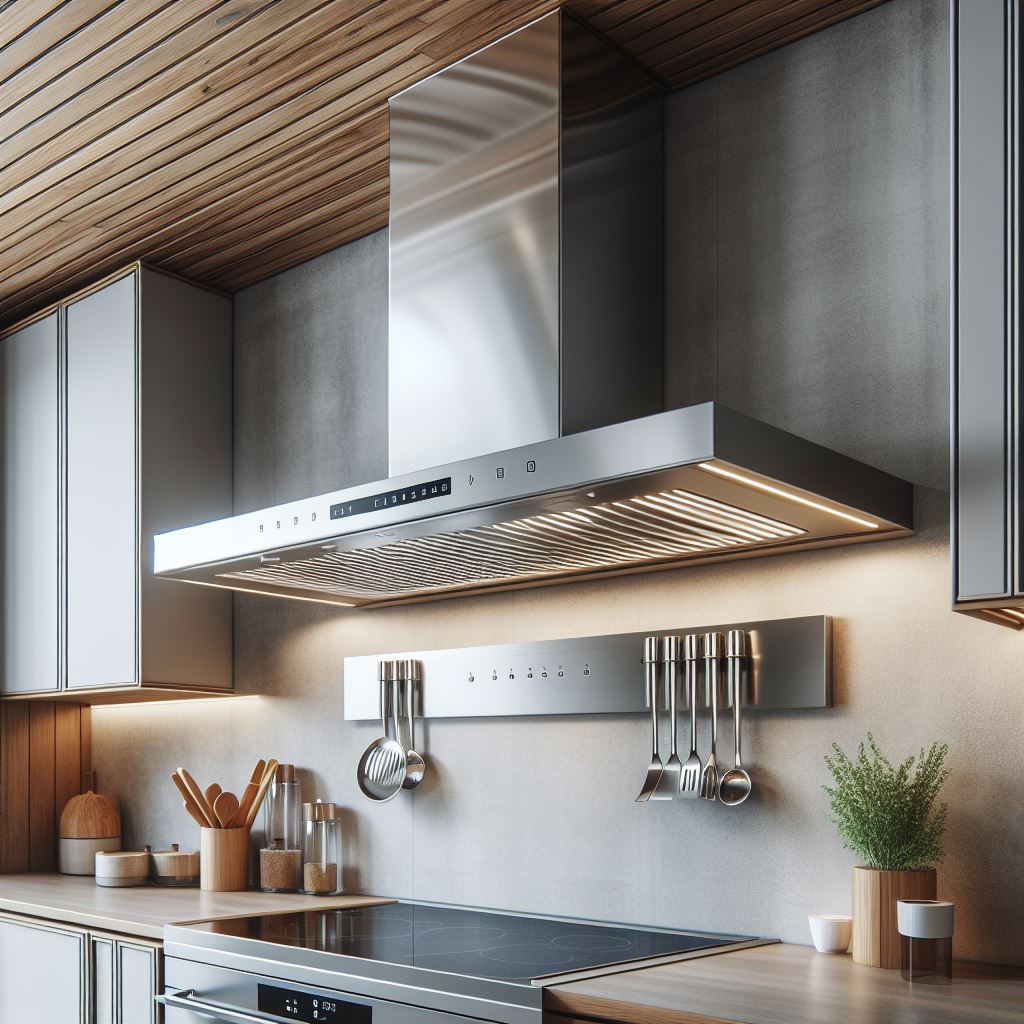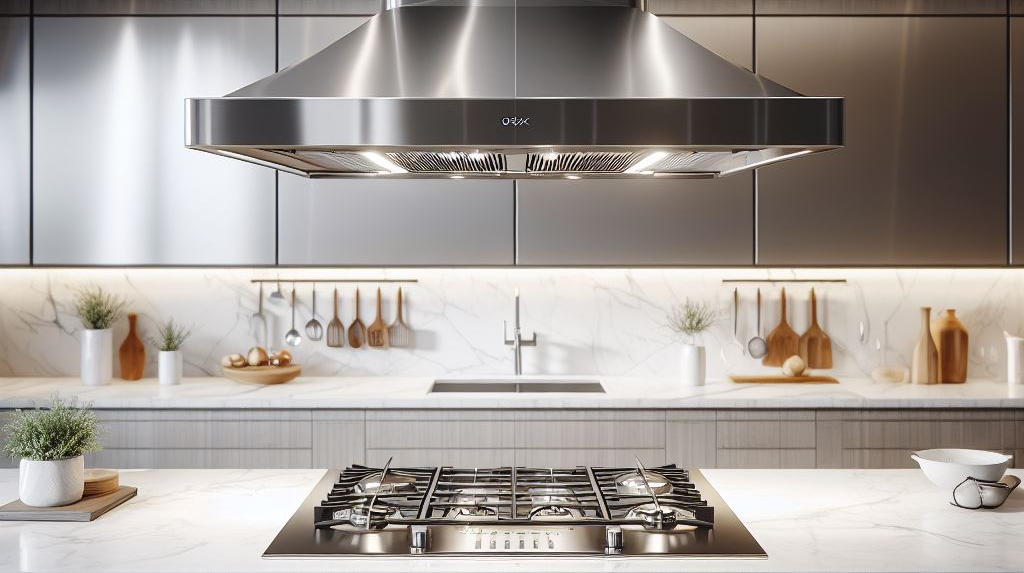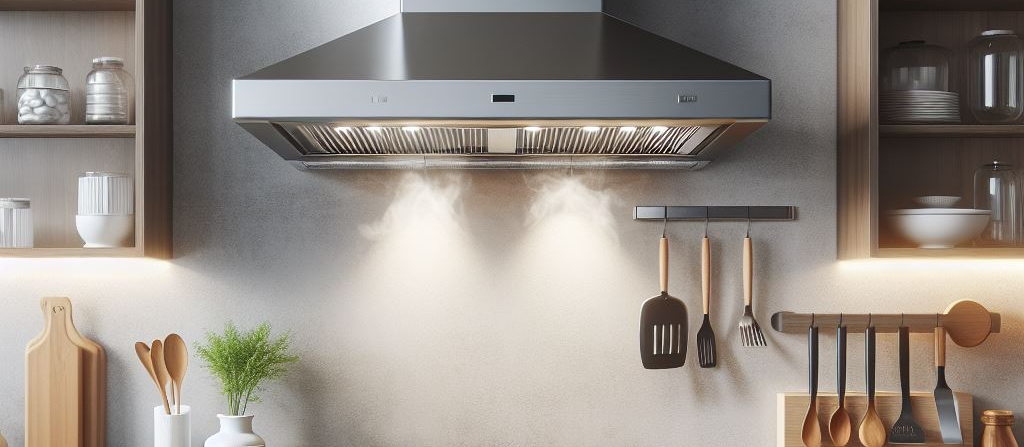The Role of MLCC in Range Hood

Multilayer Ceramic Capacitors (MLCCs) play a crucial role in enhancing the performance of modern range hoods. These small but powerful components are essential for the efficient operation of the fan motor, control circuitry, and other electronic components in the range hood system.
One of the key functions of MLCCs in range hoods is to filter and stabilize the electrical signals, ensuring smooth and reliable operation of the fan motor. By providing the necessary capacitance, MLCCs help to reduce electrical noise and interference, which can improve the overall performance and lifespan of the range hood.
MLCCs also contribute to the energy efficiency of range hoods by helping to regulate the power supply and control the speed of the fan motor. This not only reduces energy consumption but also contributes to a quieter and more efficient operation of the range hood.
Furthermore, MLCCs are essential for the safety and protection of the range hood system. They help to protect sensitive electronic components from voltage spikes and surges, ensuring that the range hood operates safely and reliably over time.

How MLCCs Contribute to the Efficiency of Range Hood Motors
Multilayer Ceramic Capacitors (MLCCs) are integral to the efficiency of range hood motors, contributing to their performance and longevity. MLCCs are used in various ways within the motor control circuitry to optimize its operation.
One key aspect is their role in filtering and smoothing the electrical signals that power the motor. MLCCs help to reduce electromagnetic interference (EMI) and noise, ensuring that the motor runs smoothly and efficiently. This filtering capability is especially important in range hoods, where motors are exposed to varying load conditions and need to operate quietly and reliably.
Additionally, MLCCs are used in the motor control circuitry to store and discharge electrical energy, which helps to regulate the voltage and current supplied to the motor. This allows for precise control of the motor speed and direction, contributing to the overall efficiency of the range hood.
Furthermore, MLCCs help to protect the motor and other electronic components from voltage spikes and surges, which can occur due to fluctuations in the power supply. By providing a stable and reliable voltage, MLCCs ensure that the motor operates safely and efficiently over its lifespan.
The Role of MLCCs in Noise Reduction in Range Hoods
Multilayer Ceramic Capacitors (MLCCs) play a significant role in reducing noise in range hoods, contributing to a quieter and more comfortable kitchen environment. Noise reduction is essential in range hoods, as loud operation can be disruptive and unpleasant for users.
One way MLCCs help reduce noise is by filtering electrical signals in the range hood’s motor control circuitry. They smooth out voltage fluctuations and reduce electromagnetic interference (EMI), which can cause electrical noise. This helps the motor run more smoothly and quietly.
Additionally, MLCCs are used in the control circuitry of range hoods to regulate the speed of the fan motor. By providing stable and precise control over the motor speed, MLCCs help to minimize vibrations and noise generated by the motor, further contributing to noise reduction.
Furthermore, MLCCs are used in the power supply circuitry of range hoods to reduce noise and interference from the mains power supply. They help to stabilize the voltage and filter out high-frequency noise, ensuring that the range hood operates quietly and reliably.
Advantages of Using MLCCs in Range Hoods over Other Capacitor Types
Multilayer Ceramic Capacitors (MLCCs) offer several advantages over other types of capacitors when used in range hoods, making them the preferred choice for designers and manufacturers. Here are some key advantages:
Size and Capacitance: MLCCs are compact and offer high capacitance values, allowing for more efficient use of space in range hood design. This is particularly important in compact or slim-range hood models where space is limited.
Reliability: MLCCs are known for their high reliability and durability, making them ideal for use in range hoods, which are subjected to frequent use and varying environmental conditions. They are less prone to failure compared to other capacitor types, ensuring a longer lifespan for the range hood.
Temperature Stability: MLCCs exhibit excellent temperature stability, making them suitable for use in range hoods, which are exposed to high temperatures during operation. They can maintain their capacitance and performance over a wide temperature range, ensuring consistent operation of the range hood.
Cost-Effectiveness: Despite their high performance and reliability, MLCCs are cost-effective compared to other capacitor types. This makes them an attractive choice for range hood manufacturers looking to reduce production costs without compromising on quality.
Noise Reduction: MLCCs help reduce electrical noise and interference in range hoods, contributing to a quieter operation. This is particularly important in residential settings where a quiet kitchen environment is desired.

Common Issues or Challenges in MLCC Implementation in Range Hoods and How to Overcome Them
While Multilayer Ceramic Capacitors (MLCCs) offer many benefits in range hood applications, there are some common issues or challenges that designers and manufacturers may encounter. Understanding these challenges and knowing how to overcome them is essential for successful MLCC implementation. Here are some common issues and their solutions:
Voltage Overload: One common issue is voltage overload, which can lead to MLCC failure. To prevent this, ensure that the MLCC is rated for the voltage levels present in the range hood circuitry.
Temperature Extremes: MLCCs can be sensitive to temperature extremes. To mitigate this, choose MLCCs with a wide temperature tolerance range and ensure proper ventilation in the range hood to prevent overheating.
Vibration and Mechanical Stress: Range hood components, including MLCCs, can be subjected to vibration and mechanical stress. To prevent damage, secure MLCCs properly and use vibration-resistant MLCCs if needed.
EMI and Noise: While MLCCs can help reduce EMI and noise, improper placement or insufficient filtering can lead to issues. Ensure that MLCCs are placed close to the noise source and properly grounded for optimal noise reduction.
Component Sourcing and Availability: Due to global supply chain issues, sourcing MLCCs may be challenging at times. To overcome this, work closely with reliable suppliers and consider alternative MLCC brands or models if necessary.
Quality Control: Ensure that MLCCs used in range hoods meet quality standards and undergo proper testing before installation. This helps prevent premature failure and ensures the long-term reliability of the range hood.
Comparison of Different MLCC Brands or Models Suitable for Range Hoods
When selecting Multilayer Ceramic Capacitors (MLCCs) for range hood applications, it’s essential to compare different brands or models to choose the most suitable option. Here’s a comparison of some popular MLCC brands or models used in range hoods:
TDK C Series: TDK’s C Series MLCCs are known for their high reliability and temperature stability, making them suitable for range hoods exposed to varying environmental conditions. They offer a wide range of capacitance and voltage options to suit different range hood designs.
Murata GRM Series: Murata’s GRM Series MLCCs are renowned for their compact size and high capacitance, ideal for space-constrained range hood designs. They also offer good temperature stability and reliability, making them a popular choice among manufacturers.
Samsung CL Series: Samsung’s CL Series MLCCs are known for their high quality and performance. They offer excellent temperature stability and are designed to withstand voltage spikes and surges, making them suitable for range hood applications where reliability is critical.
AVX OxiCap Series: AVX’s OxiCap Series MLCCs are known for their high reliability and low equivalent series resistance (ESR), making them ideal for high-performance range hoods. They offer excellent noise suppression and voltage regulation capabilities, contributing to the overall efficiency of the range hood.
KEMET KC-LINK Series: KEMET’s KC-LINK Series MLCCs are designed for high-power applications, making them suitable for range hoods with powerful motors. They offer low ESR and high ripple current handling capabilities, ensuring reliable operation under demanding conditions.
When comparing different MLCC brands or models for range hood applications, consider factors such as capacitance, voltage rating, temperature stability, reliability, and size. Choose the MLCC that best meets the requirements of your range hood design for optimal performance and longevity.
